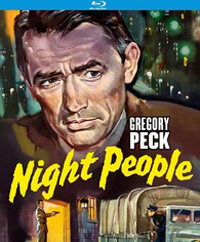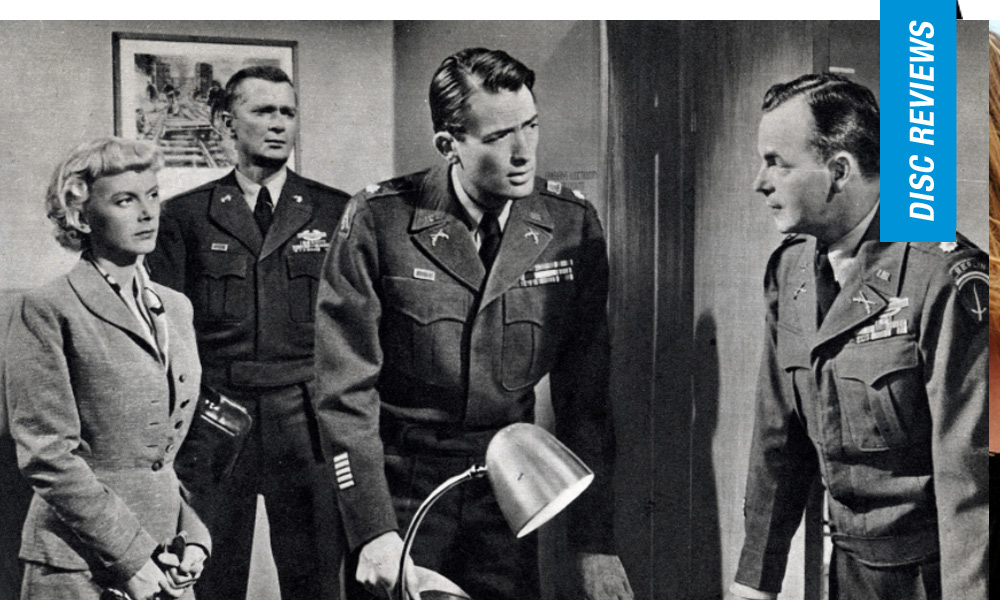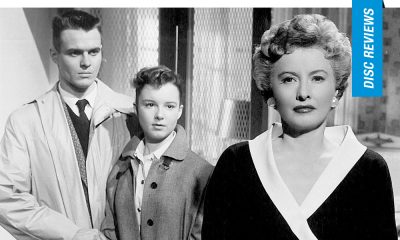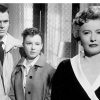Night People (1954) | Blu-ray Review
 Nunnally Johnson is best remembered as a prominent screenwriter from Hollywood’s Golden Age, having toiled through the studio era from the 1930s through the 1960s, penning several auteurs’ most beloved and iconic titles. Scoring an early major success with John Ford’s 1940 adaptation of The Grapes of Wrath, Johnson would spend the next decade laying the groundwork to jumpstart his own directorial legacy, an opportunity which came shortly after the Howard Hawks classic Gentlemen Prefer Blondes (1953).
Nunnally Johnson is best remembered as a prominent screenwriter from Hollywood’s Golden Age, having toiled through the studio era from the 1930s through the 1960s, penning several auteurs’ most beloved and iconic titles. Scoring an early major success with John Ford’s 1940 adaptation of The Grapes of Wrath, Johnson would spend the next decade laying the groundwork to jumpstart his own directorial legacy, an opportunity which came shortly after the Howard Hawks classic Gentlemen Prefer Blondes (1953).
Having scripted A.J. Cronin’s novel The Keys to the Kingdom (1944), which netted Gregory Peck an Oscar nod, Johnson used his friendship with the actor to his advantage with his directorial debut, Night People in 1954. What was meant to be a post-WWII espionage tinged thriller is more often a tepid, overly loquacious exercise featuring its key players in a roundelay of confounding conversations as they navigate the slippery politics of West Berlin.
When Corporal John Leatherby (Ted Avery) is captured by allied enemies in post-WWII West Berlin, American provost martial Lt. Col. Steve Van Dyke (Gregory Peck) is assigned to investigate. Through his East German contact Frau “Hoffy” Hoffmeir (Anita Bjork), Van Dyke learns the Soviets kidnapped Leatherby and want to exchange him for an East German couple the Russians are interested in nabbing. When Leatherby’s rich, industrialist father (Broderick Crawford) flies in from Toledo, Van Dyke is further pressured for results. When the East German couple is detained, they overdose on strychnine, and the resolution is further compromised.
Inexplicably, Johnson’s career as a director was much shorter than his output would have otherwise indicated. If Night People was ultimately a non-starter, Johnson churned out the Lana Turner noir Black Widow the same year and re-teamed with Peck on the much more successful The Man in the Gray Flannel Suit (1956).
Between 1954 and 1960, he would helm eight features, the most memorable becoming 1957’s The Three Faces of Eve which scored Joanne Woodward a Best Actress Academy Award. But after The Angel Wore Red (1960), the two-time Oscar nominated Johnson would finish his career exclusively as a screenwriter with titles for George Roy Hill, Henry Koster, and most famously, Robert Aldrich’s celebrated The Dirty Dozen (1967).
As Lt. Col. Steve Van Dyke, Peck is once again a figure of warm, fatherly authority, albeit not one who believably inspires the dueling attentions of the film’s two becoming female characters (the other being Rita Gam) while giving everyone cutesy nicknames. Broderick Crawford is, as per usual, an imposing, hulking presence defined by his importance and location (the script tends to repeat certain details a bit too often, as in how many times we are told Crawford hails from Toledo, Ohio).
Other supporting characters of interest include Buddy Ebsen of “The Beverly Hillbillies” in a serious minded role as Peck’s Sgt., Max Showalter (every bit as obnoxious as his suburban fuddy-duddy in Niagara), and British actress Jill Esmond (of Hitchcock’s The Skin Game, 1931) as one part of the German couple wanted by the Russians. The only character of real interest is Hoffy, thanks to Swedish actress Anita Bjork (of Alf Sjostrom’s Miss Julie) as a double agent with serious bangs who lights up the screen with the type of energy everyone else lacks.
Certain sore issues about responsibility amongst the surviving German populous, all of whom denounce their ties to the fallen Nazi regime post WWII, results in some interesting observations in Night People, which more often than not is a long string of people talking seriously but monotonously in sterile, contained rooms. Nearly all of the film’s more flamboyant details (eyes gouged out by Nazis, strychnine overdoses) take place off screen, only to be discussed matter-of-factly in the most superifical terms possible. Munich is a stand-in for Berlin (for actual exterior shots of the city from around this time period, US audiences would have to wait for Billy Wilder’s 1961 film One, Two, Three), and despite hinting at action to come, Night People is denuded of any real blocking with its actors (sans one extreme bit of violence involving Bjork, which comes out of nowhere and is so out of keeping with the rest of the film it just may elicit as gasp).
Disc Review:
Kino Lorber presents Night People as part of its Studio Classics label in 2.55:1. Picture and sound quality are serviceable, though DP Charles G. Clarke (who would lens a few of Johnson’s directorial efforts) doesn’t have many opportunities to show off with the film’s stagnant interiors.
Interviews:
The children of Gregory Peck are on hand to comment about the film, culled from the same source as that used for the extra features on Kino’s earlier Blu-ray release of The Paradine Case (1947) starring their father.
Final Thoughts:
Unfortunately, Night People belongs to a long tradition of screenwriters segueing into directorial debuts. Overly chatty and rather conservative considering its subject matter, it is perhaps a film best reserved for fans of Gregory Peck.
Film Review: ★★½/☆☆☆☆☆
Disc Review: ★★★/☆☆☆☆☆































